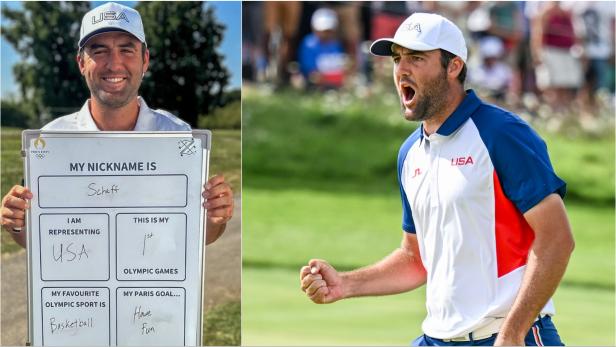How Scottie Scheffler’s Olympic goal of having fun still helped him take home gold – Australian Golf Digest

- by Admin
- August 6, 2024

Prior to the 2024 men’s Olympic golf competition, the Olympic Golf Instagram handle posted photos showcasing nine players’ answers to the same five questions: their nickname, who they’re representing, how many Olymipc Games they’ve competed in, their favorite Olymipc sport, and their goal. All but one had the same goal of winning a medal. Scottie Scheffler was the outlier. His goal: Have fun.
Fast forward a few days and Scheffler was wearing the gold medal. He shot 62 in the final round, including a 29 on the back nine to win by one stroke over Tommy Fleetwood.
The only player who didn’t reference winning a medal in their goals was the one who won gold. And there might be a reason for that.
Sports psychologist Dr. Deborah Graham, who has worked with many tour pros, notably Fred Couples, says that goals unrelated to outcome can help you perform better because they’re focused on factors you can control.
“If you stay fixed on the goal of winning, invariably you’re going to start feeling it somewhere during the round, after a bad shot or a bad hole. Usually, it’s the last few holes where it just dominates your mind,” Dr. Graham says. “The reason it’s a problem for most people is because it encompasses things they can’t control.”
MORE: Scottie Scheffler’s ‘Paris Goal’ should terrify his opponents at the Olympics
The problem with winning as a main goal is that there are variables out of one’s hands that influence results. You can’t control what other people shoot. You could have the best round of your life, but someone might be better that day.
“If the goal is to win, to medal, they always have to go to what I call the next level,” Dr. Graham says.
Process-oriented goals, meanwhile, are more within your control. For instance, Scheffler’s focus on having fun was generally something he could control. In the moments when the pressure builds and it feels like everything is on the line, Dr. Graham says you want to check back in with your goal and have it calm your body and mind so that you’re more ready to hit the shots you need to hit. So when Scheffler needing to shoot 29 on the back nine to win the Olympics, he was able to revisit his objective of enjoying the experience.
By distancing himself from outcome, the hard shots likely became easier to convert. He’d likely be in a worse state to be able to hit the shots he needs to hit if winning was his only focus.
“I love the example of Tiger Woods at the 2005 Masters,” Dr. Graham says. “When his father was sick, he wanted to play well and win for him. He channeled that desire to win into a simple goal: great tempo on every shot. And he did it. He stayed with it. It’s hard to do, but he did it. And he won.”
MORE: Scottie Scheffler tearing up at the podium while the national anthem plays might be the clip of the year in golf
This doesn’t mean that you can’t think about winning or that wanting to win is wrong. Instead, Dr. Graham says to take that desire to win, and ask what you need to do to help that happen?
The answer is different for everyone. And it requires you to know yourself and what state you need to be in to play your best golf. For one person, it might be that you need to walk with confidence. For Tiger at the 2005 Masters, it was having great tempo. And for Scheffler in Paris, it was to have fun.
“Having that goal will help ground you in the present moment,” Dr. Graham says. And that’s where you need to be to be able to hit your best shot.
The next time you catch yourself setting outcome-focused goals—to win the member-guest, to break 90, whatever it is—pause and remember that even the best golfer in the world was just trying to have fun.
MORE: The clubs Scottie Scheffler used to win the gold medal at the Paris Games
This article was originally published on golfdigest.com
The Latest News
-
January 10, 2025‘Great crew’: Bullish Aussie stars set to shake up Open
-
January 10, 2025‘Very confident’: Kyrgios’ fresh swipe at Sinner
-
January 10, 2025‘They can say what they want’: Smith excited with Test captaincy return
-
January 10, 2025Eye-watering record cash prize Australian Open winner will win
-
January 10, 2025Nervous 9999s: Steve Smith rues milestone miss as he backs teenage tyro to be a hit





